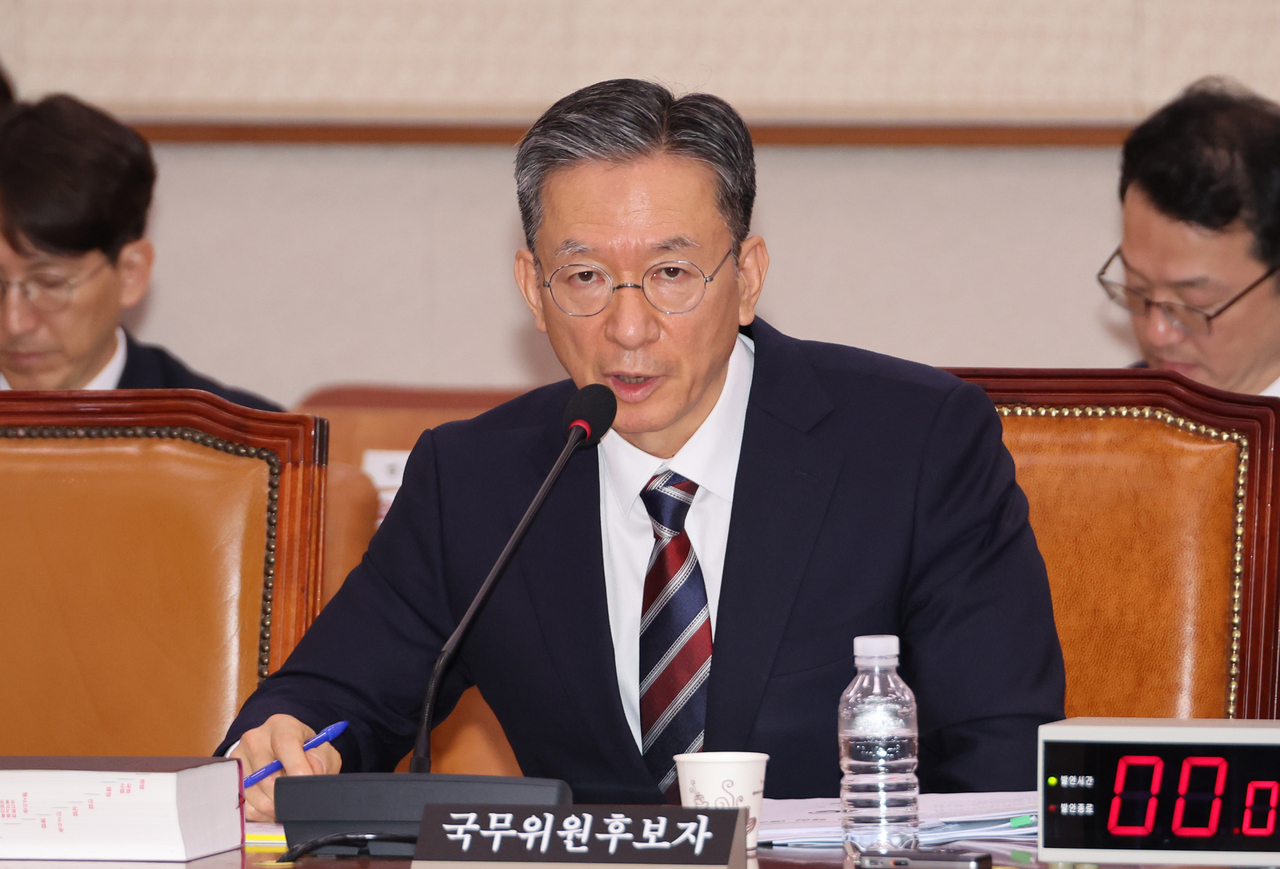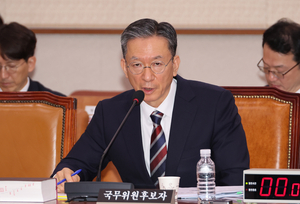 Democratic Party of Korea Rep. Jung Sung-ho speaks at a hearing on his nomination as justice minister Wednesday. Yonhap
Democratic Party of Korea Rep. Jung Sung-ho speaks at a hearing on his nomination as justice minister Wednesday. Yonhap President Lee Jae Myung’s pick for justice minister, Democratic Party of Korea Rep. Jung Sung-ho, said Wednesday that taking away the public prosecution service’s authority to investigate was inevitable.
Speaking at a National Assembly hearing on his nomination, Jung said, “Reforming the prosecution service is the call of the times.”
“To ensure the prosecution service remains politically neutral, and to keep its excessive powers in check, reforming the prosecution is the path that cannot be changed,” Jung said.
Jung’s remarks on Wednesday echo Lee’s calls for turning the prosecution service into a noninvestigative institution in a major overhaul of the country’s criminal justice system.
On July 3, during his first press conference since his inauguration some four weeks prior, Lee said that prosecutors “had it coming” with the reform plan. “Manipulating cases to build an indictment is something that should never happen,” the president said.
Since before he was a presidential candidate, Lee had pushed to slash the prosecution’s investigative powers, claiming that criminal investigations into allegations surrounding him and his close aides were politically motivated.
Bills submitted by the Democratic Party shortly after Lee took office would make it so the prosecution service as it is now would be abolished and replaced by new bodies. This is similar to the reform drive pushed under former President Moon Jae-in of the Democratic Party.
Former President Moon, who had also made reform of the prosecution service part of his administration’s main agenda, removed prosecutors’ ability to investigate corruption and other crimes involving powerful people, and set up a new body called the Corruption Investigation Office for High-ranking Officials.
In the country’s recent history, the prosecution service had led some of the most high-profile investigations into the political and corporate elite, including former conservative Presidents Lee Myung-bak and Park Geun-hye and Samsung heir Lee Jae-yong.
Critics say reducing the prosecution’s role could lead to more oversight in the criminal justice system, as police would be able to terminate investigations without prosecutors’ input.
arin@heraldcorp.com
